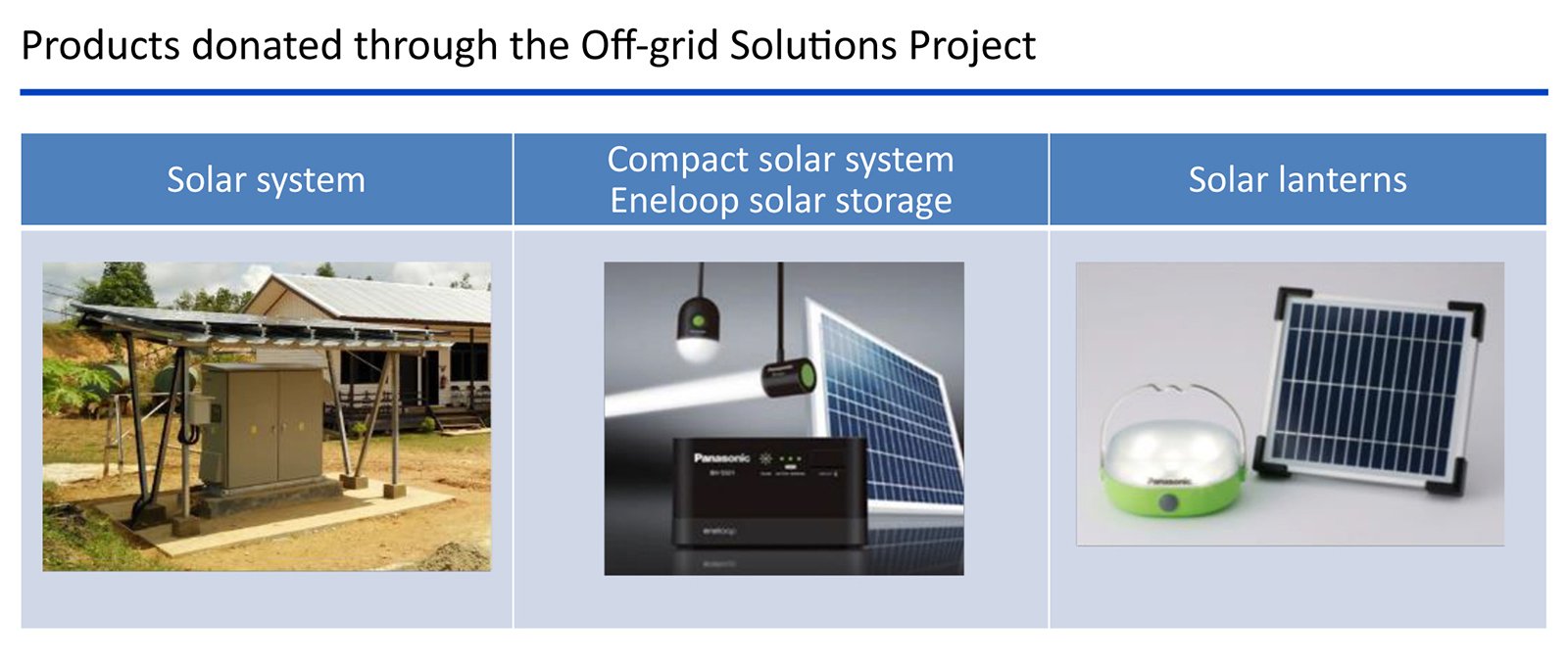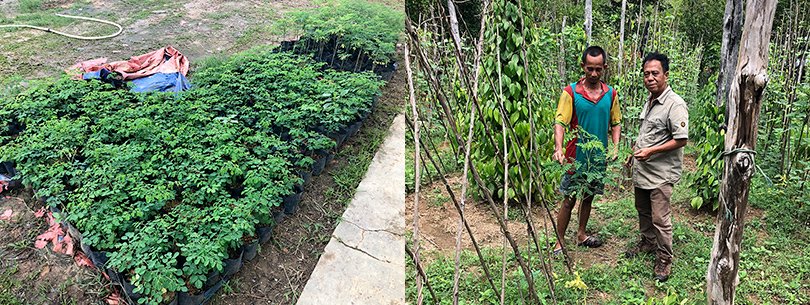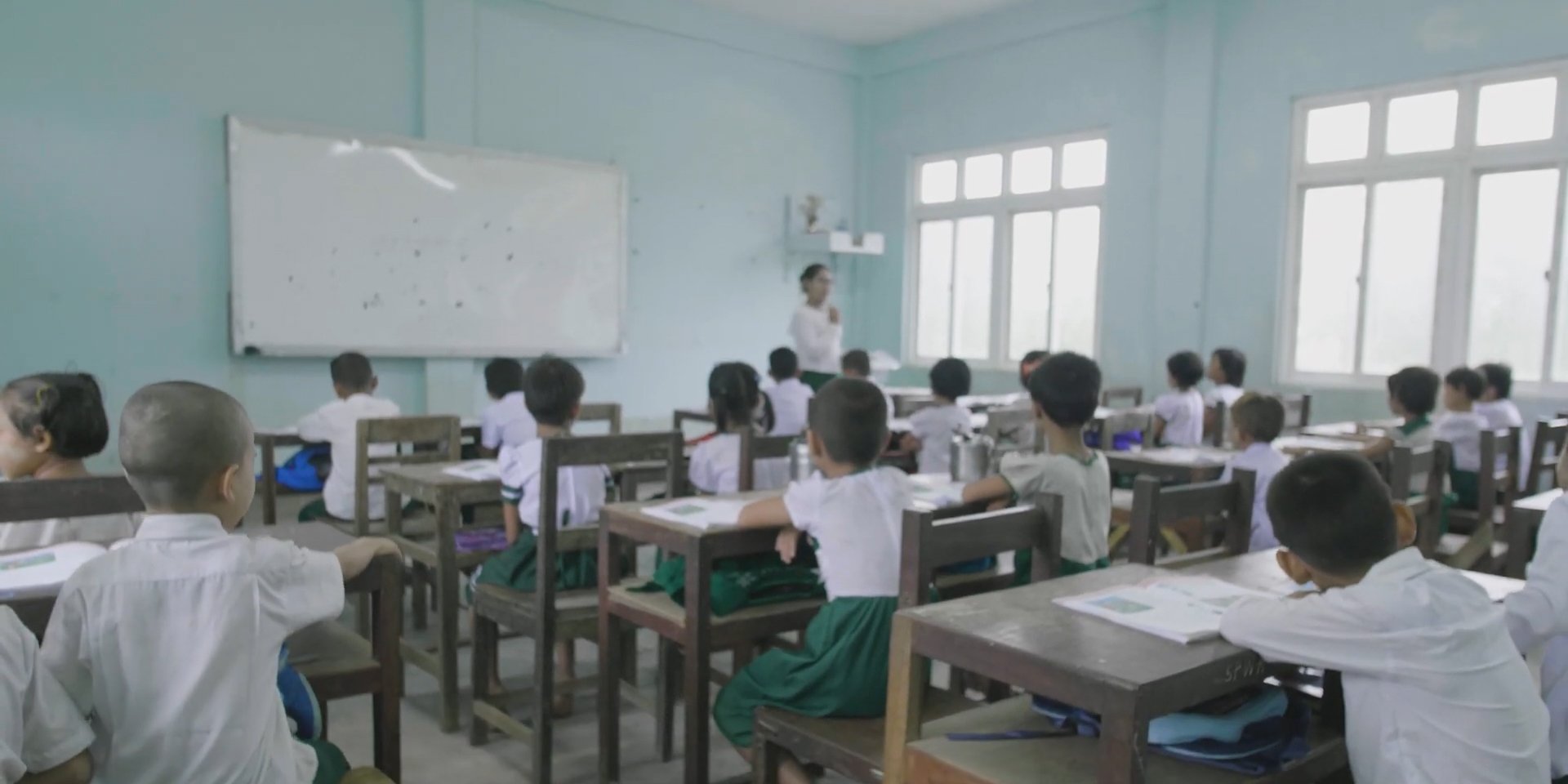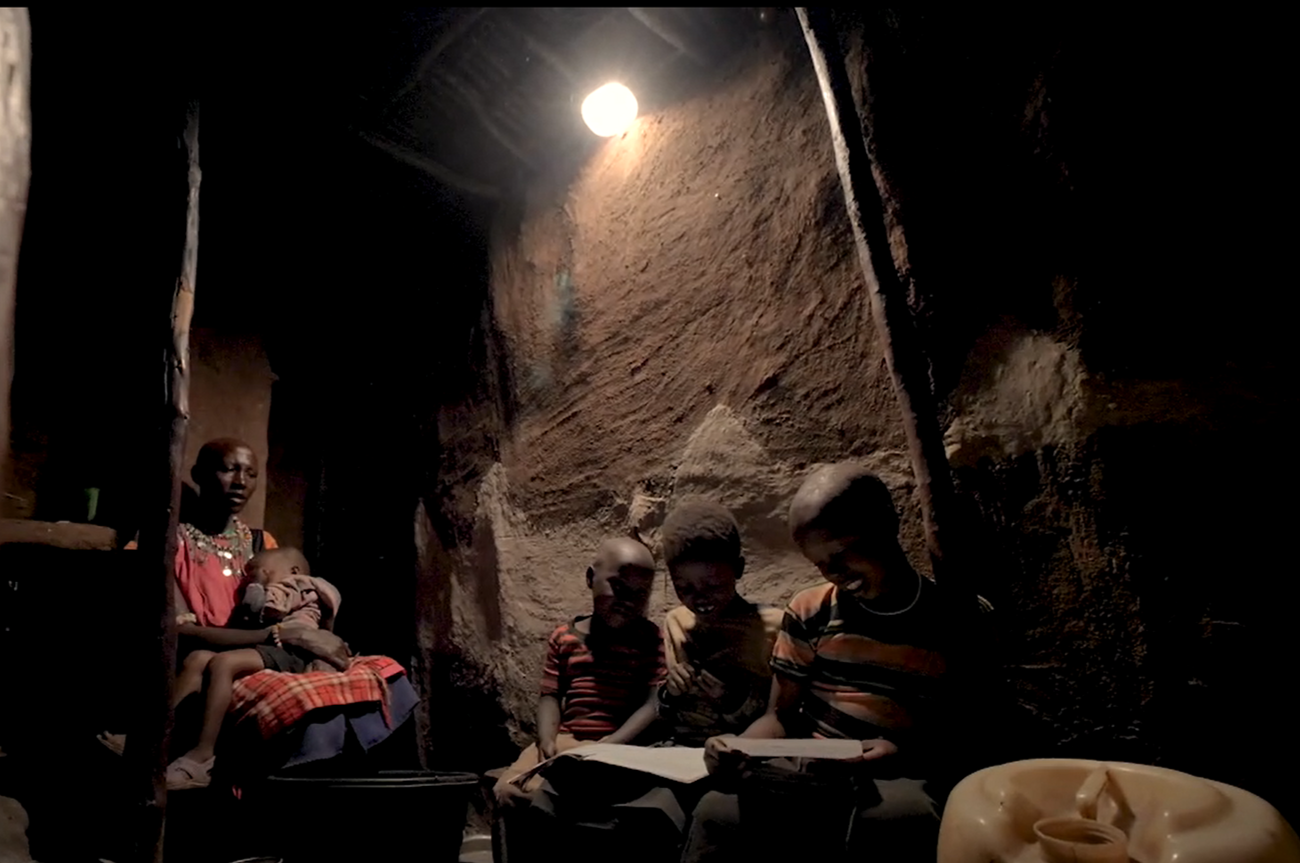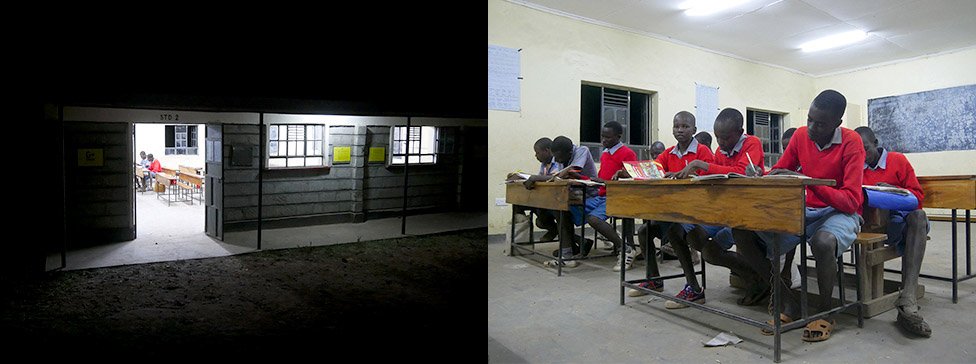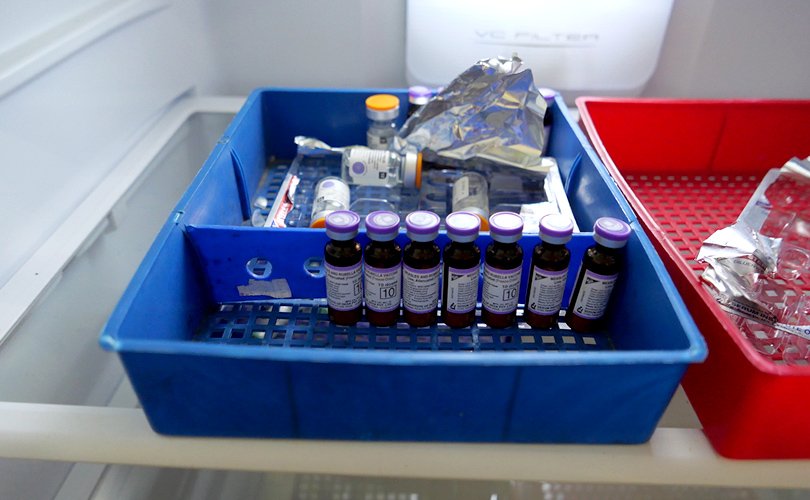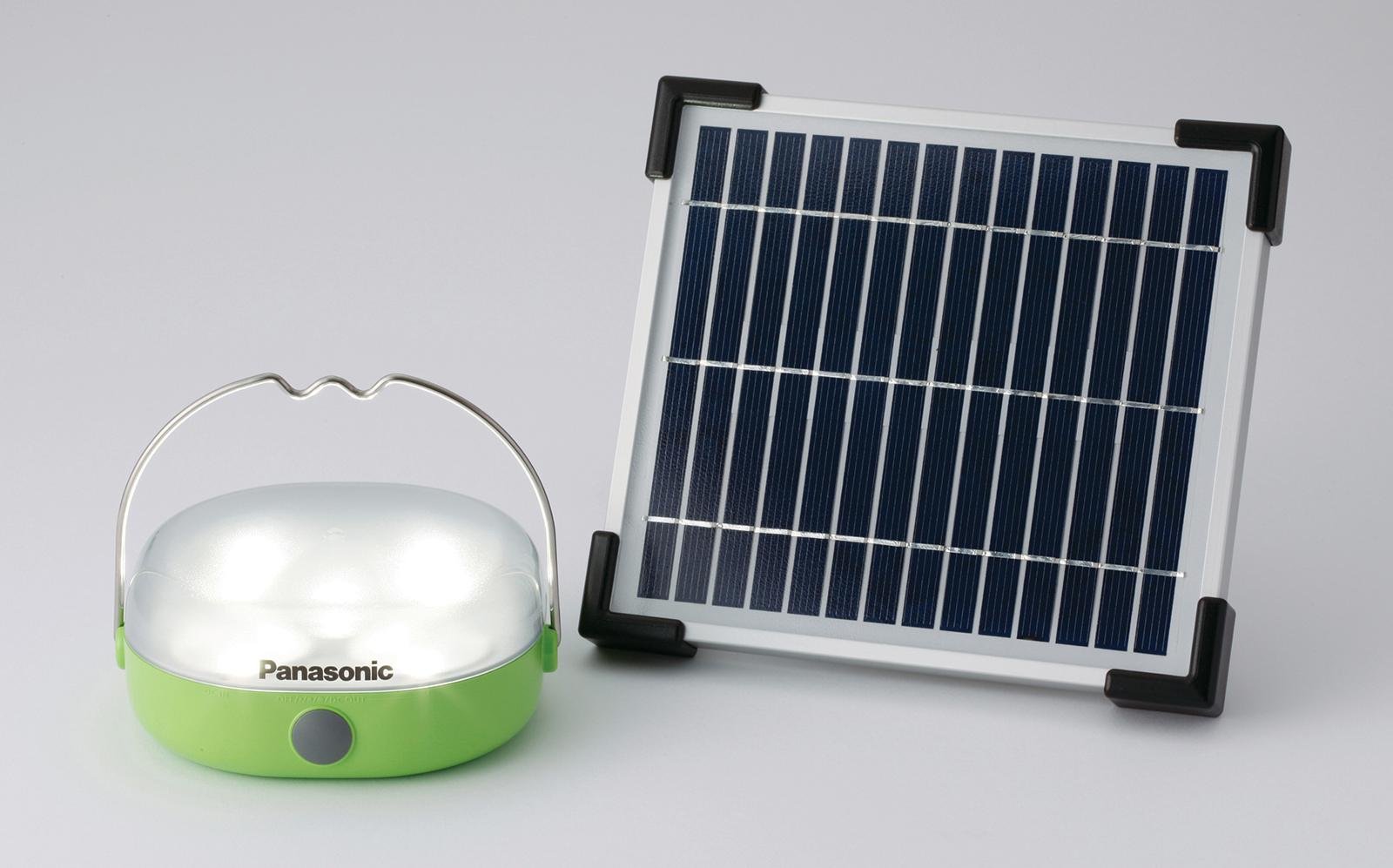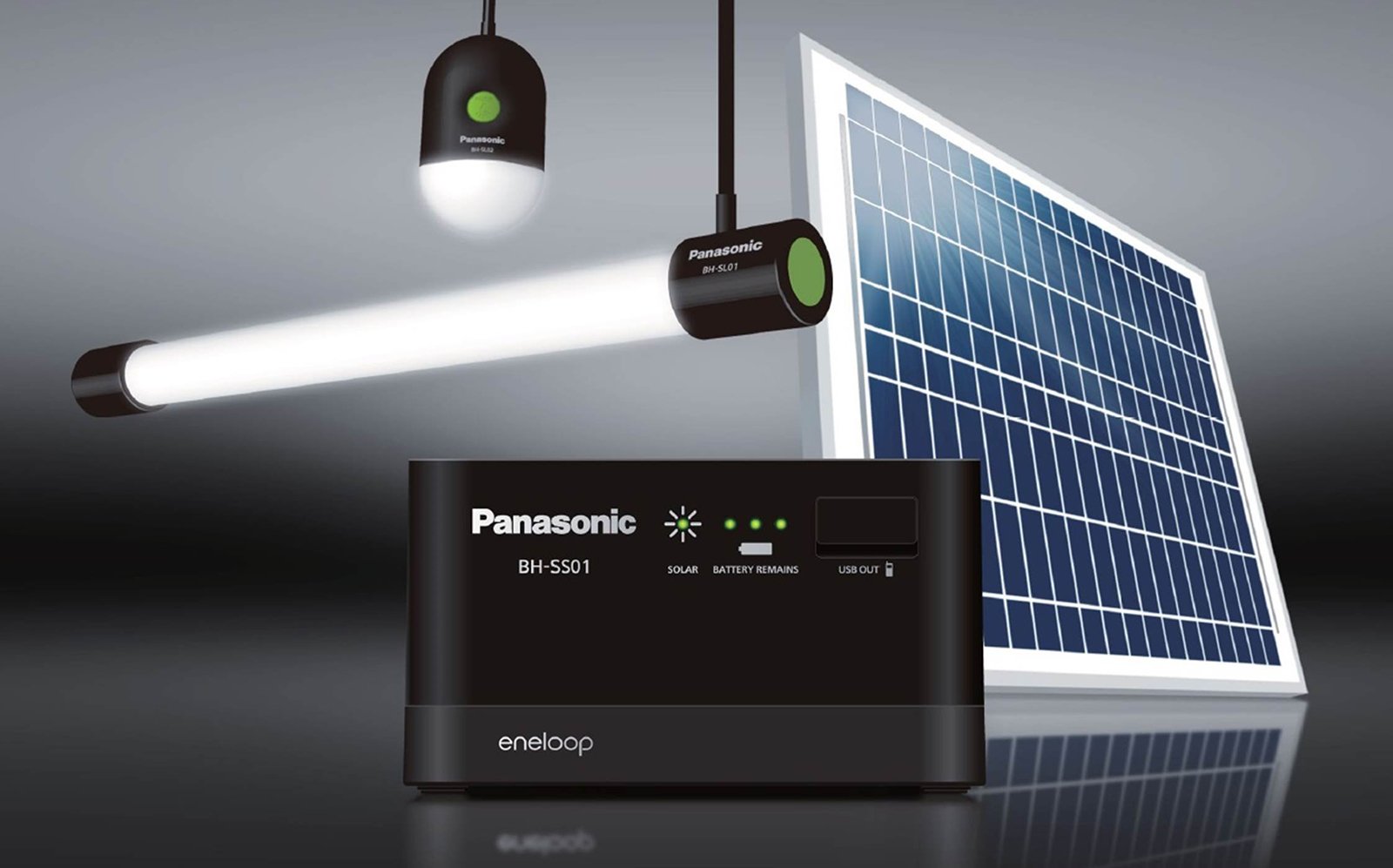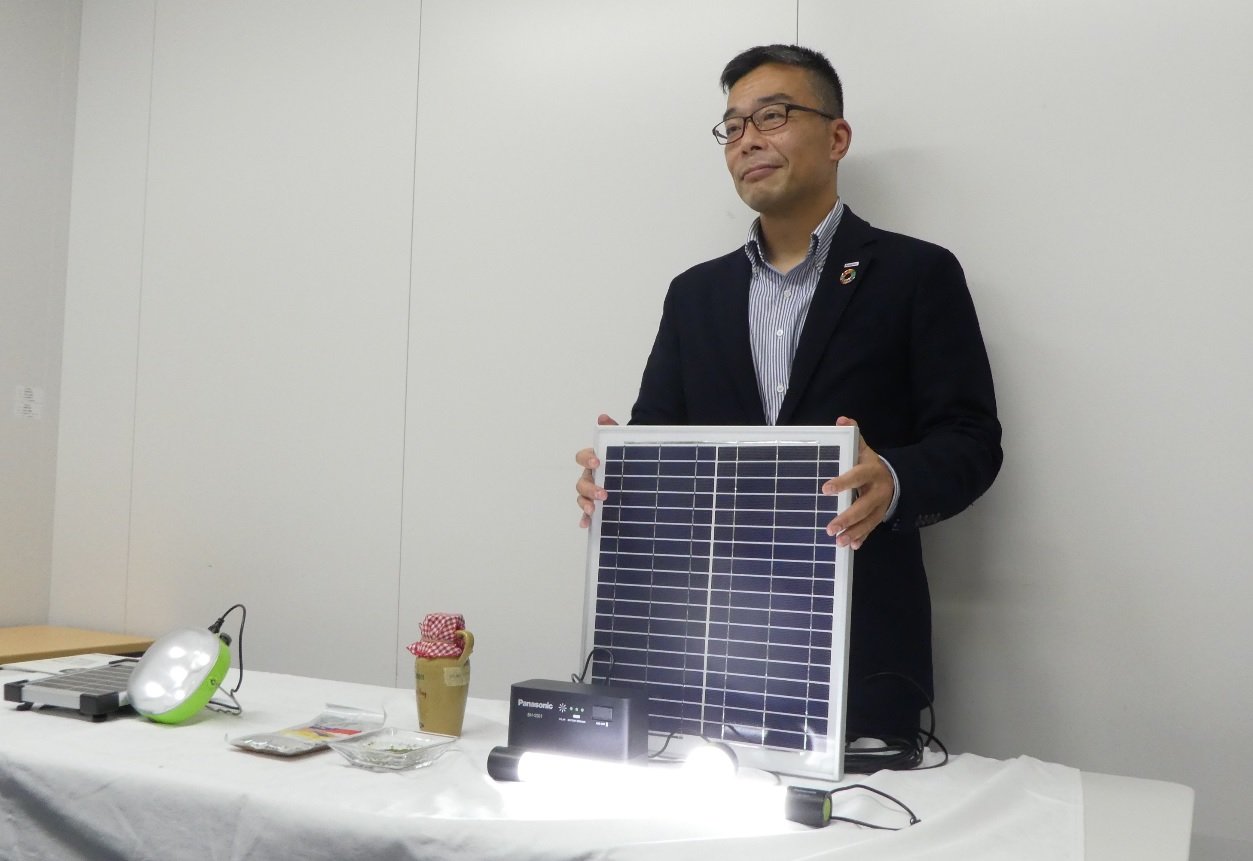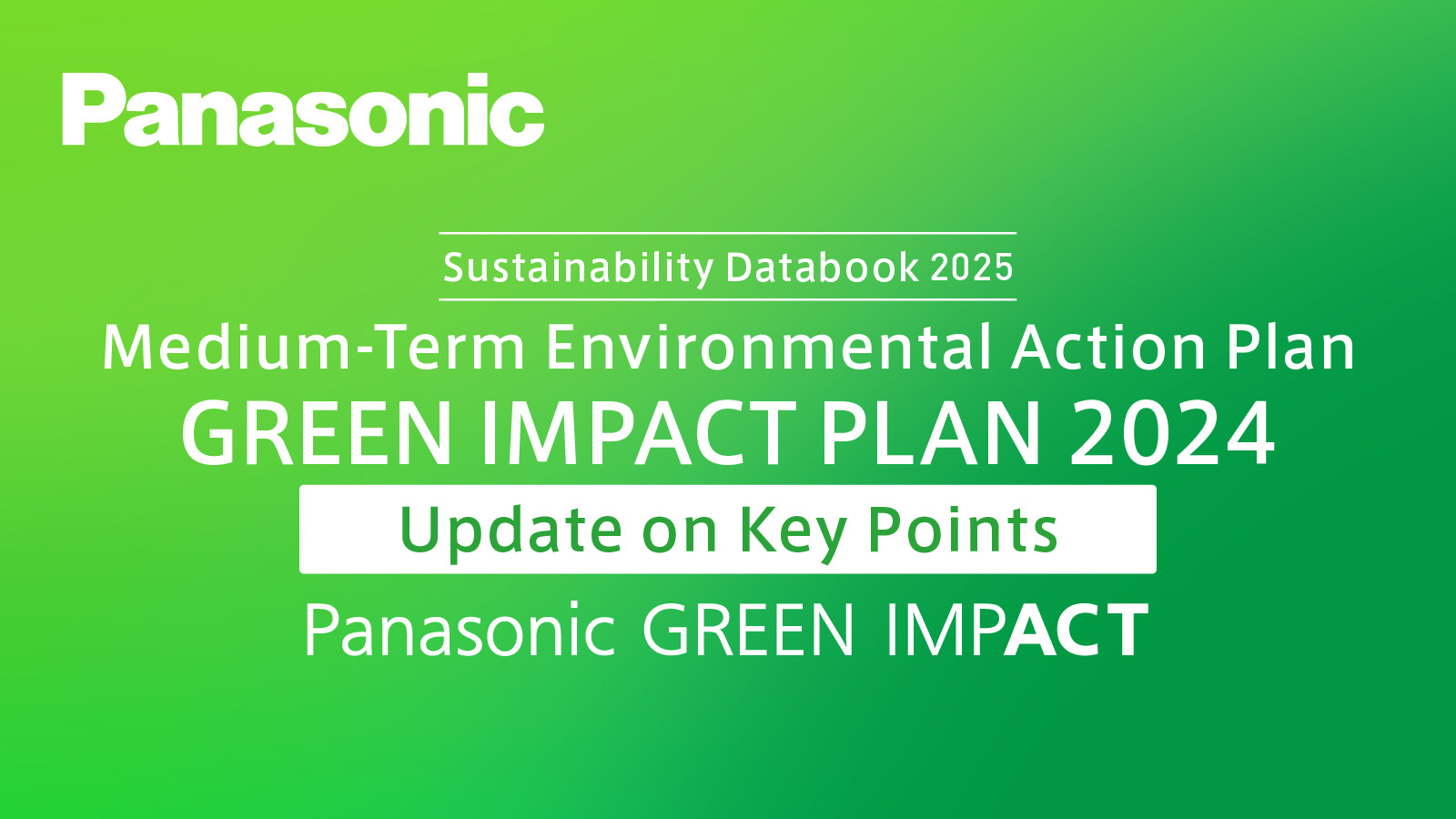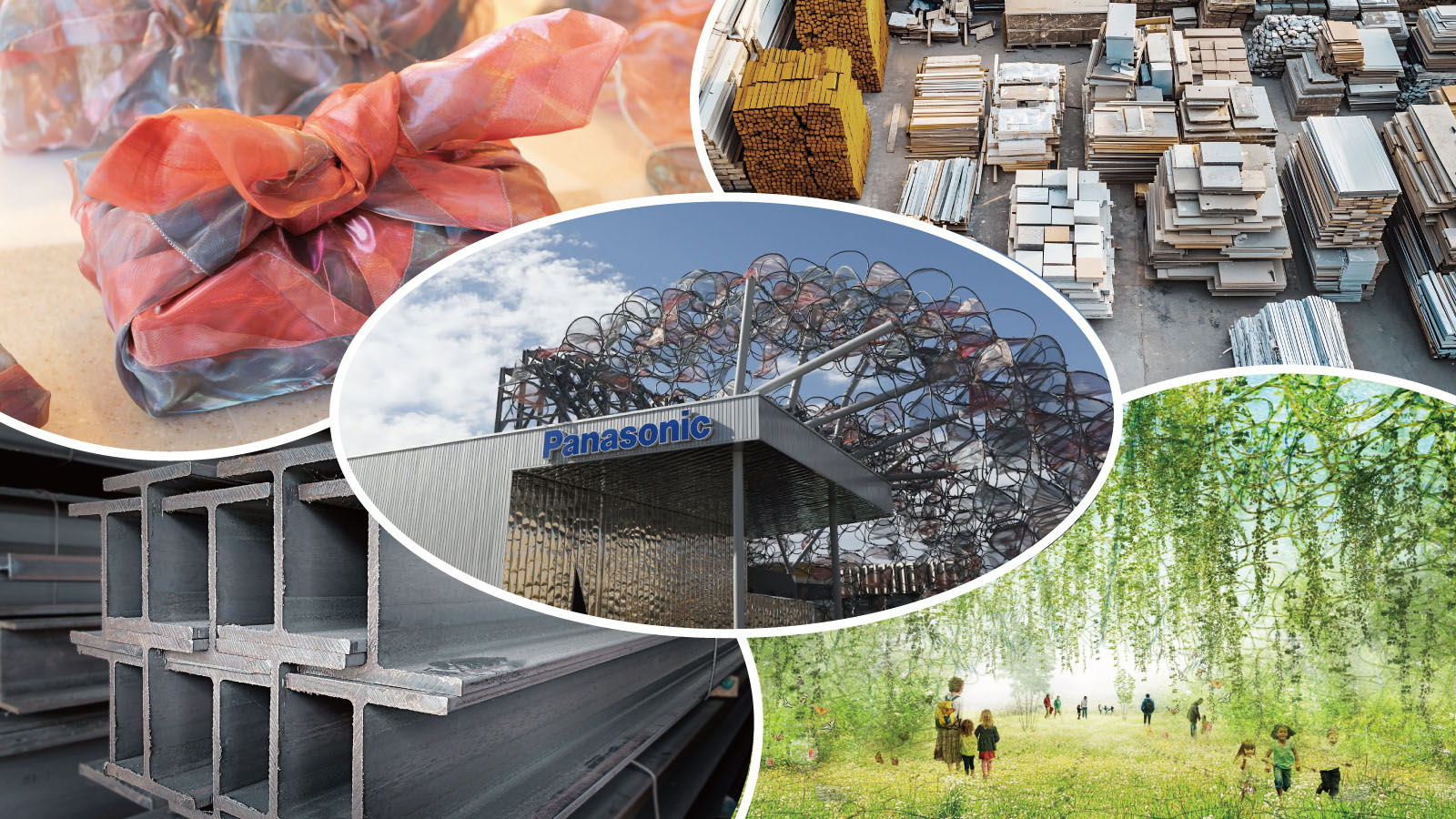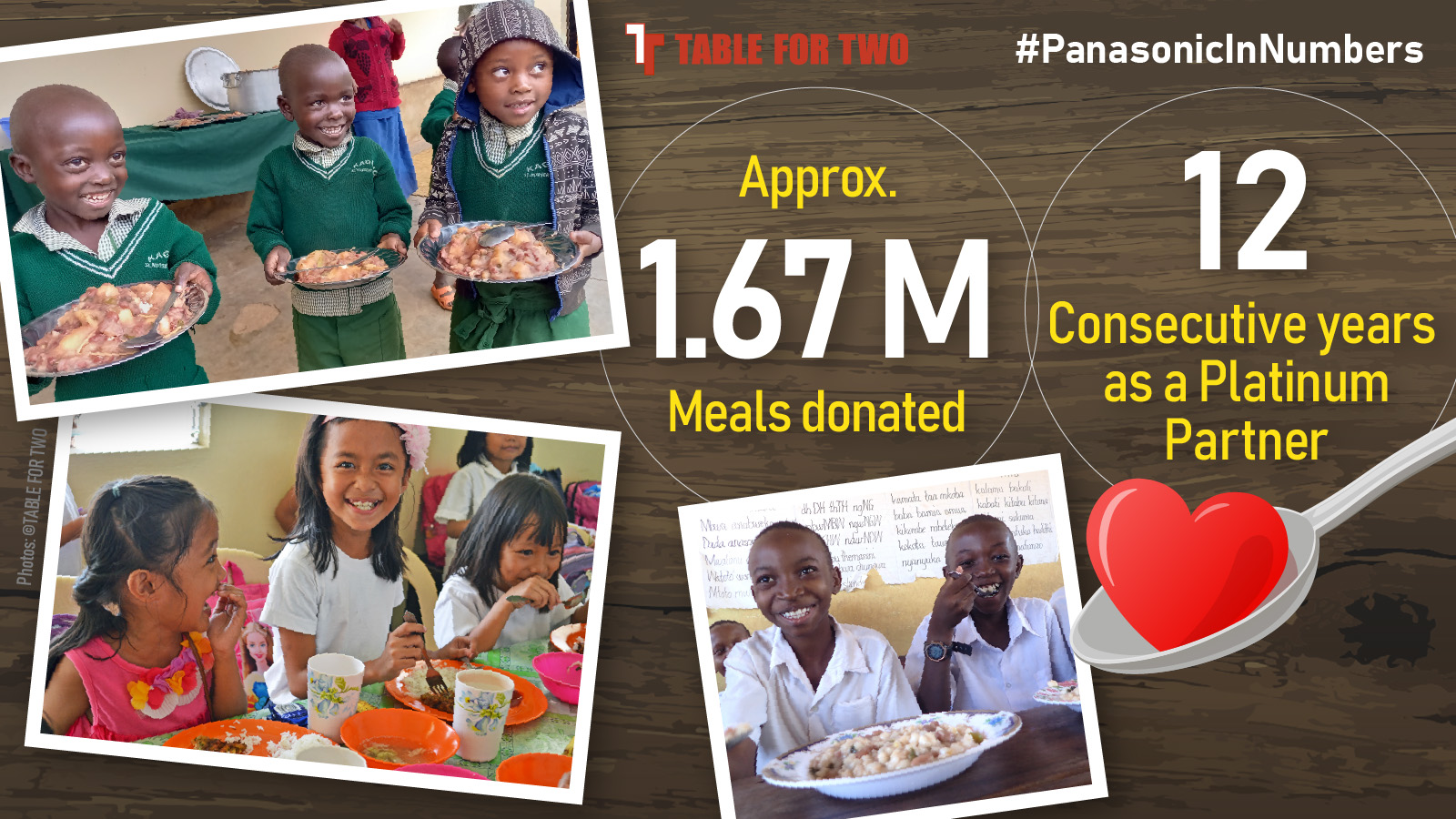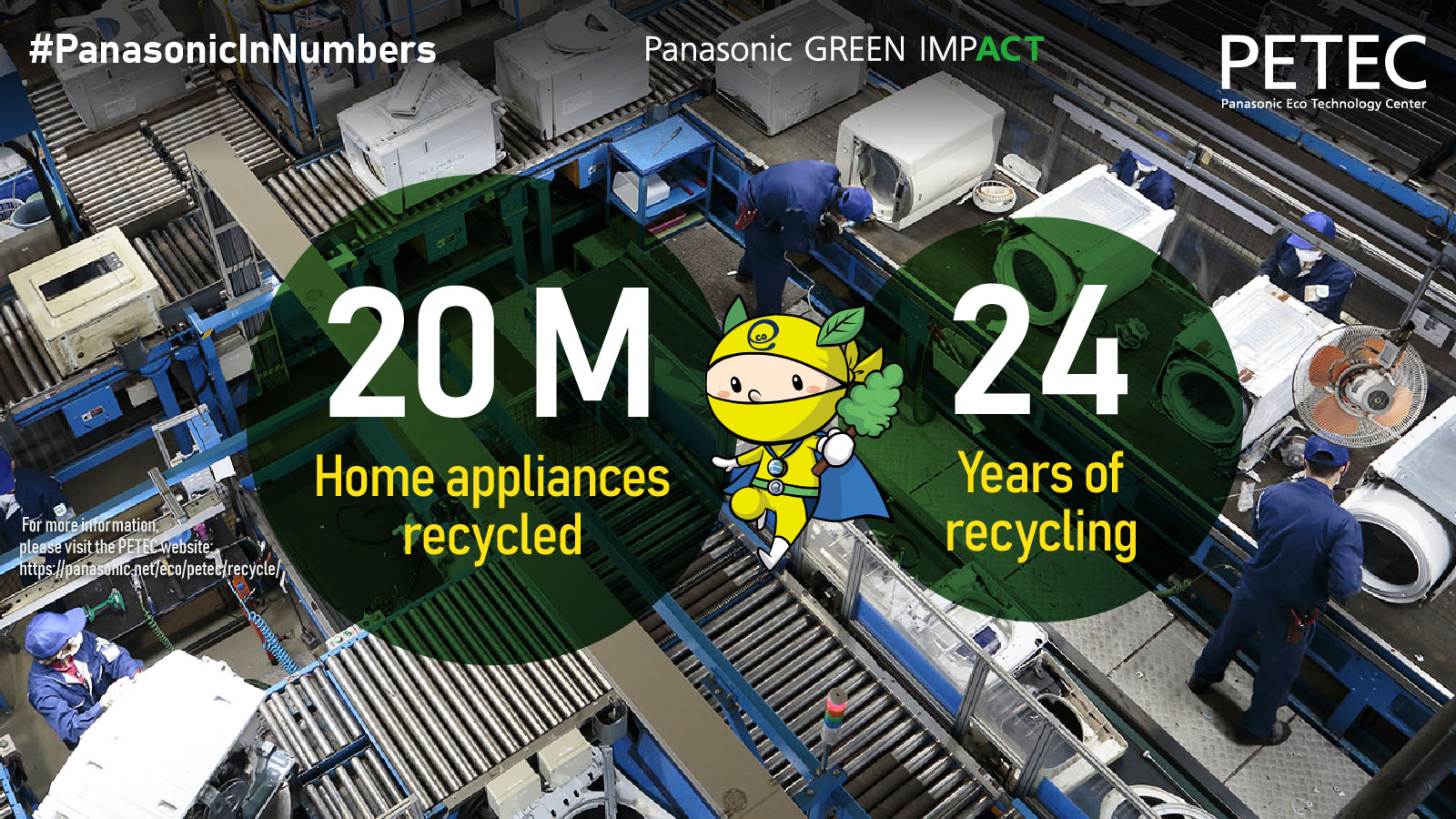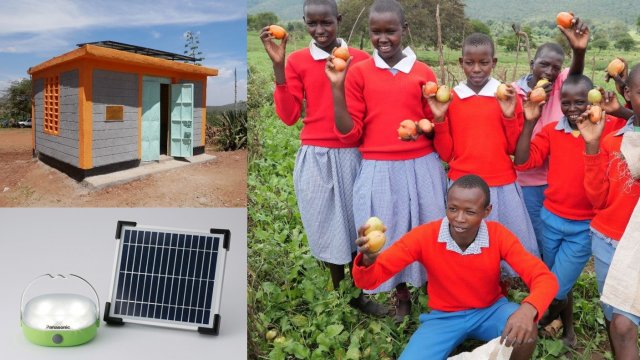
It is said that around the world there are approximately 800 million people who live without access to electricity (according to the 2019 data from International Energy Agency as of November 2020). From 2013 to 2018, Panasonic undertook the "100 Thousand Solar Lanterns Project" to provide "light" to unelectrified areas hoping to help resolve educational, medical, economic, and safety issues. Drawing on this know-how, Panasonic launched its "Off-grid Solutions Project" in 2018 and has continued with its efforts to contribute to the development of sustainable communities.
Staying true to its foundational management philosophy, "Contributing to people's lives and the development of society through its business activities," Panasonic is undertaking corporate citizenship activities utilizing its technologies and solutions.
To do its part in achieving "Goal 1, End poverty in all its forms everywhere" of the Sustainable Development Goals established by the United Nations, Panasonic has set "eliminating poverty to realize an inclusive society" as a key theme of its corporate citizenship activities and is tackling poverty and social inequality in developed, emerging, and developing countries in 3 areas: Human Development, New Opportunities, and Mutual Understanding.
Panasonic's Off-grid Solutions Project contribute to SDGs:
With the help of NGOs and NPOs, the Off-grid Solutions Project, which helps create opportunities, was launched in 2018 in 3 countries - Indonesia, Myanmar, and Kenya.
In addition to the donation of its solar systems, Panasonic is also promoting the use of electricity and providing educational programs to help people earn more and to learn, which are fundamental steps in eliminating poverty. Ultimately, Panasonic hopes to help areas develop sustainably through independent, empowered communities. Furthermore, Panasonic is helping to develop community businesses such as processing and sales of agricultural products and fish and the growing and sales of vegetables using solar pumps for irrigation in order to produce the best results that take into consideration the needs and challenges of each region.
Key results
Indonesia
- Project areas: Semitau and Suhaid, Kapuas Hulu District, West Kalimantan Province.
- Characteristics of the areas: Average household income is approximately 8 to 12 dollars a day. Commodity price tends to be more expensive than urban areas, so people find difficulty of living.
- Achievements: Using electricity produced by solar systems people have begun growing, processing, and selling agricultural products and fresh water fish.
- Partner NGOs: Yayasan Dian Desa (Indonesia) and Asian Community Center 21 (Japan)
Local residents receive superfood, moringa seedings grown by Yayasan Dian Desa (photo left) and grow them on their farm (photo right). Once the crop is harvested, the local NGO will buy their yield.
Moringa plants are dried, ground into a fine powder (photo left), packed into capsules (photo center), and then bottled (photo right).
Myanmar
- Project area: Baingbin Senna Village, Pantanau Township, Ma-ubin District, Ayeyarwady Region.
- Characteristics of the area: Average household income is approximately 2.5 dollars a day. Population: 1,845. The area is hard to access, and 95% of the residents are farmers, who produce mainly rice and beans. In 2016, with the help of a Japanese NPO, a school was erected in the village. Of the 6 village schools constructed in the same year, this village collected seed funding from its villagers the fastest, so the village is very keen to become empowered.
- Achievements: In addition to installation of solar power generation systems, provided LED lighting to the student dormitory. By enabling students to study at night, the percentage of students enrolling in advanced education (passing their graduation exams) went up from 17% to 32% in 2 years.
- Partner NPO: Association for Rengein Tanjoji International Cooperation (ARTIC)
The school began using Panasonic's solar system instead of a diesel generator. The students were happy that they could now concentrate on their studies better without the noise of the generator.
Kenya
- Project area: Ilkimati Village, Enkutoto District, Elangata-Enterit, Narok South Constituency, Narok County.
- Characteristics of the area: Average household income is approximately 2.5 dollars a day. Approximately 3,700 Maasai live in this village near the border of Tanzania. There are no industries in this region. The only resources they have are their livestock (cattle and goats). According to the preliminary survey conducted among approximately 150 households, 60% do not have enough food, and so improving the educational environment is a key challenge for the region.
- Achievements: Electrical pumps and drip irrigation systems were set up on the school farm to cultivate tomatoes and watermelons. Began raising chicken and selling eggs. This gave the community enough proceeds to begin providing school lunches every day and helped improved school attendance. Literacy programs for adults are being held at night. The clinic could now stay open at night and store vaccines in the refrigerator, so the number of people getting vaccinated has doubled.
- Partner NGO: World Vision Japan
Homes of the Maasai usually only have one small window, so it is very dark inside. In the past they had used kerosene lamps indoors but by using solar lanterns, they can mitigate the damage to their health caused by kerosene and also save money on kerosene.
At the 3-acre farm tilled by students and school staff they are growing tomatoes, maize, and watermelons. The fact that they can eat at school is one of the key reasons why students are attending school.
In the 3 regions where Panasonic undertakes its activities, Panasonic is helping communities become independent, empowered by the end of FY2021 (by the end of March 2022). Panasonic is also preparing to launch a new initiative after FY2022.
Panasonic will continue with its efforts in order to bring to life an "inclusive society" where everyone shares in the joy and lives life exuberantly.
# # #
- Disclaimer:
- We would like to note that Panasonic Newsroom is not a place to address personal Customer Service issues. Even though this is not the forum, Panasonic is always eager to resolve your concerns. Our local customer services contacts can be found at Global Support or you can see our list of Social Media Accounts to find the right channel for your queries and concerns.
Related Links
Related News
- [Press Release] Panasonic Enters into Central Water Purifier Business in Indonesia for Domestic Use of Well Water (Feb 6, 2020)
- Finding Light-filled Hearts in a Cambodian Village without Electricity - The Launch of the AKARI: Bringing Light to People Project (Oct 24, 2019)
- Panasonic and World Vision Launch Off-grid Solutions Project in Narok County, Kenya (Jan 31, 2019)
- Panasonic Launches Off-grid Solutions Project in Myanmar to Celebrate Its 100th Anniversary (Jul 16, 2018)
- [Press Release] Panasonic Launches Off-grid Solutions Project to Mark Its Centenary (Apr 23, 2018)
- Panasonic Fulfills 100 Thousand Solar Lanterns Project in its 100th Anniversary, Bringing Light to Off-grid Communities Globally (Jan 30, 2018)


